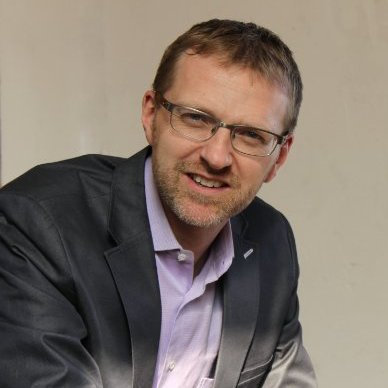
Research Interest
The role of Health Technology Assessment in developing economies, Clinician-Researcher role in the Kazakhstan healthcare system
What is the best selling medicine of all time?
The answer to this question will reveal a product that has had cumulative revenues exceeding the annual GDP of many countries. I use this astounding fact to kick off many course introductions because it catalyzes discussions on how a single medicine could achieve such a feat and what underlies such unprecedented success. Clinical trial data is one of of the reasons. I have a passion to help students understand, interpret and apply the results of clinical trials, to the end of improving health for the citizens of Kazakhstan.
I am Assistant Professor of Practice at the School of Medicine. I joined NU in 2011 as Deputy Director for the Center of Life Sciences, then worked as a consultant to a World Bank Kazakhstan Health Sector Reform project and to pharmaceutical and medical device companies in Kazakhstan before joining the School of Medicine in 2017. I am a graduate of the University of Toronto, Faculty of Pharmacy (1995) and of the University of London, London School of Hygiene and Tropical Medicine (2003, Epidemiology). I am a licensed pharmacist in the province of Ontario.
In the MD program, I teach pharmacology and principles of evidence based medicine. I also designed and teach a course in Drug Development and Clinical Trials in the Master of Molecular Medicine degree program and I supervise student researchers in the Masters in Public Health program.
I am leading an initiative to bring multinational pharmaceutical trials to the clinics affiliated with NU through the Center for Clinical Trials Kazakhstan has significant potential to be involved in this area.
In addition to teaching and clinical trials, I have interests in Health Technology Assessment including determining the reasons why some pharmaceutical products are used liberally in CIS countries, but rarely prescribed in other jurisdictions.
Recent Authorship/Medical Writing
- Khangura SD, la Fleur P, Argáez C, Adcock L. Bowel preparation for elective colorectal procedures: a review of clinical effectiveness, cost-effectiveness, and guidelines. Ottawa: CADTH; 2018 Jul. (Fulltext)
- la Fleur P, Adcock L. Bowel preparation for colorectal procedures: a review of clinical effectiveness, cost-effectiveness and guidelines. Ottawa: CADTH; 2018 Apr. (Fulltext)
- Edge R, la Fleur P, Adcock L. Human growth hormone treatment for children with Prader-Willi Syndrome: a review of clinical effectiveness, cost-effectiveness, and guidelines. Ottawa: CADTH; 2018 Jan. (Fulltext)
- la Fleur P, Argáez C. Platelet-rich plasma injections for wound healing and tissue rejuvenation: a review of clinical effectiveness, cost-effectiveness and guidelines. Ottawa: (CADTH; 2017 Jun (CADTH rapid response report: summary with critical appraisal).(Fulltext, PUBMED)
- la Fleur P, Jones S. Non-Alcohol Based Hand Rubs: A Review of Clinical Effectiveness and Guidelines. Ottawa: CADTH; 2017 March. (CADTH rapid response report: summary with critical appraisal). PMID: 29266912 (Fulltext, PUBMED).
- Aripov M, Mussayev A, Alimbayev S, et al. Individualized renal artery denervation improves blood pressure control in Kazakhstani patients with resistant hypertension. Kardiol Pol 2017; 75, 2: 101–107 (Fulltext)
- Pya Y, Bekbossynova M, Jetybayeva S et al. Initial 3-year outcomes with left ventricular assist devices in a country with a nascent heart transplantation program. ESC Heart Failure 2016;3:26-34 (Fulltext)
- Muratov S, Hailey D, Foerster V, Brady B, Juzwishin D, la Fleur P, McGowan J. Mentoring a health technology assessment initiative in Kazakhstan. Int J Technol Assess Health Care. 2014 Apr;30(2):147-52. (Fulltext)
Bowel Preparation for Elective Colorectal Procedures: A Review of Clinical Effectiveness, Cost-Effectiveness, and Guidelines
Khangura, S., la Fleur, P., Argáez, C., Adcock, L., 2018 In : Canadian Agency for Drugs and Technologies in Health (CADTH).
CADTH Rapid Response Reports: Non-Alcohol Based Hand Rubs: A Review of Clinical Effectiveness and Guidelines
la Fleur, P., Jones, S., 2017 CADTH Rapid Response Reports. Canadian Agency for Drugs and Technologies in HealthCopyright (c) 2017 Canadian Agency for Drugs and Technologies in Health.,
CADTH Rapid Response Reports: Platelet-Rich Plasma Injections for Wound Healing and Tissue Rejuvenation: A Review of Clinical Effectiveness, Cost-Effectiveness and Guidelines
la Fleur, P., Argaez, C., 2017 CADTH Rapid Response Reports. Canadian Agency for Drugs and Technologies in HealthCopyright (c) 2017 Canadian Agency for Drugs and Technologies in Health.,
Mentoring a health technology assessment initiative in Kazakhstan
Muratov, S., Hailey, D., Foerster, V., Brady, B., Juzwishin, D., la Fleur, P., McGowan, J., 2014 In : International Journal of Technology Assessment in Health Care. 30, 2, p. 147-52



